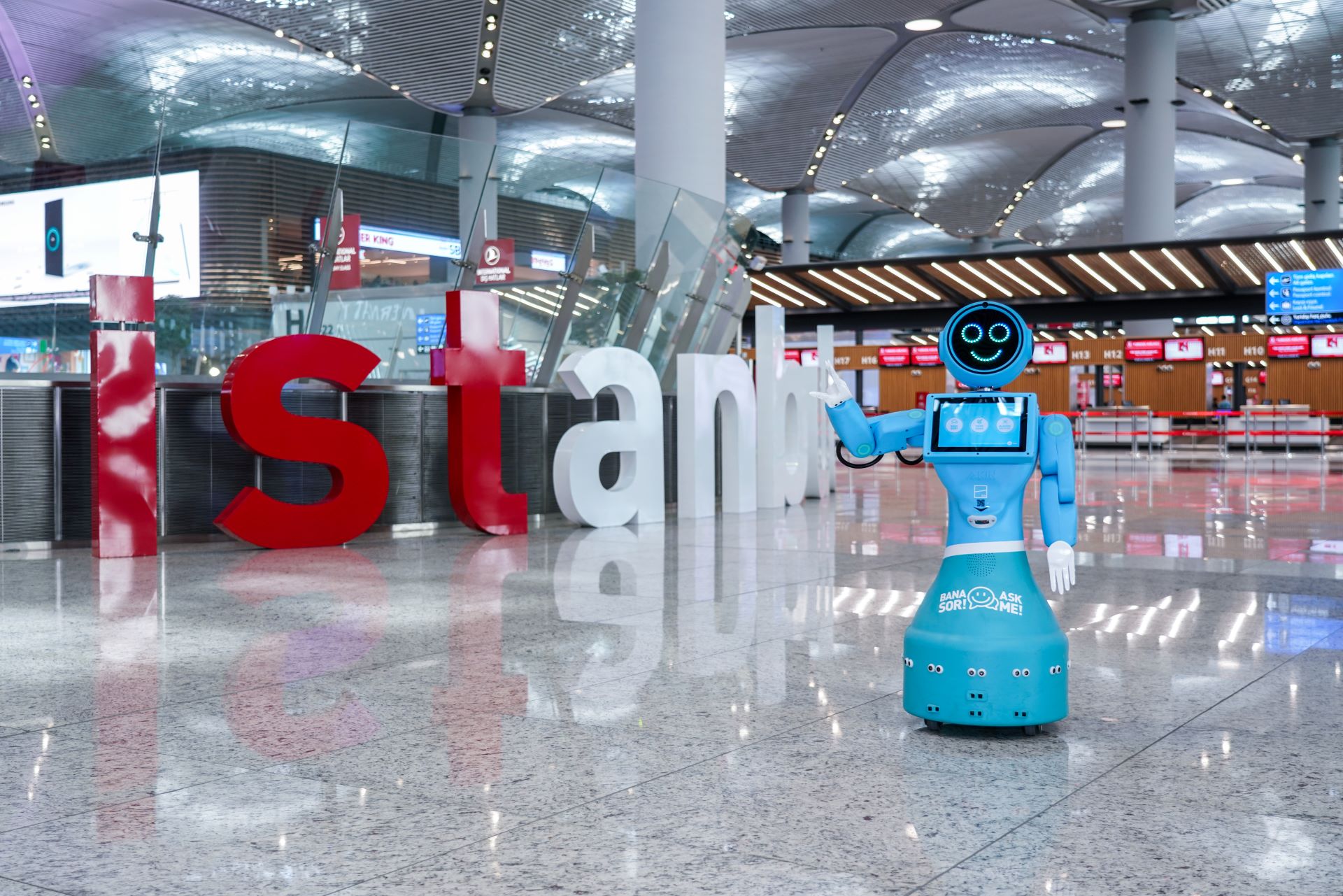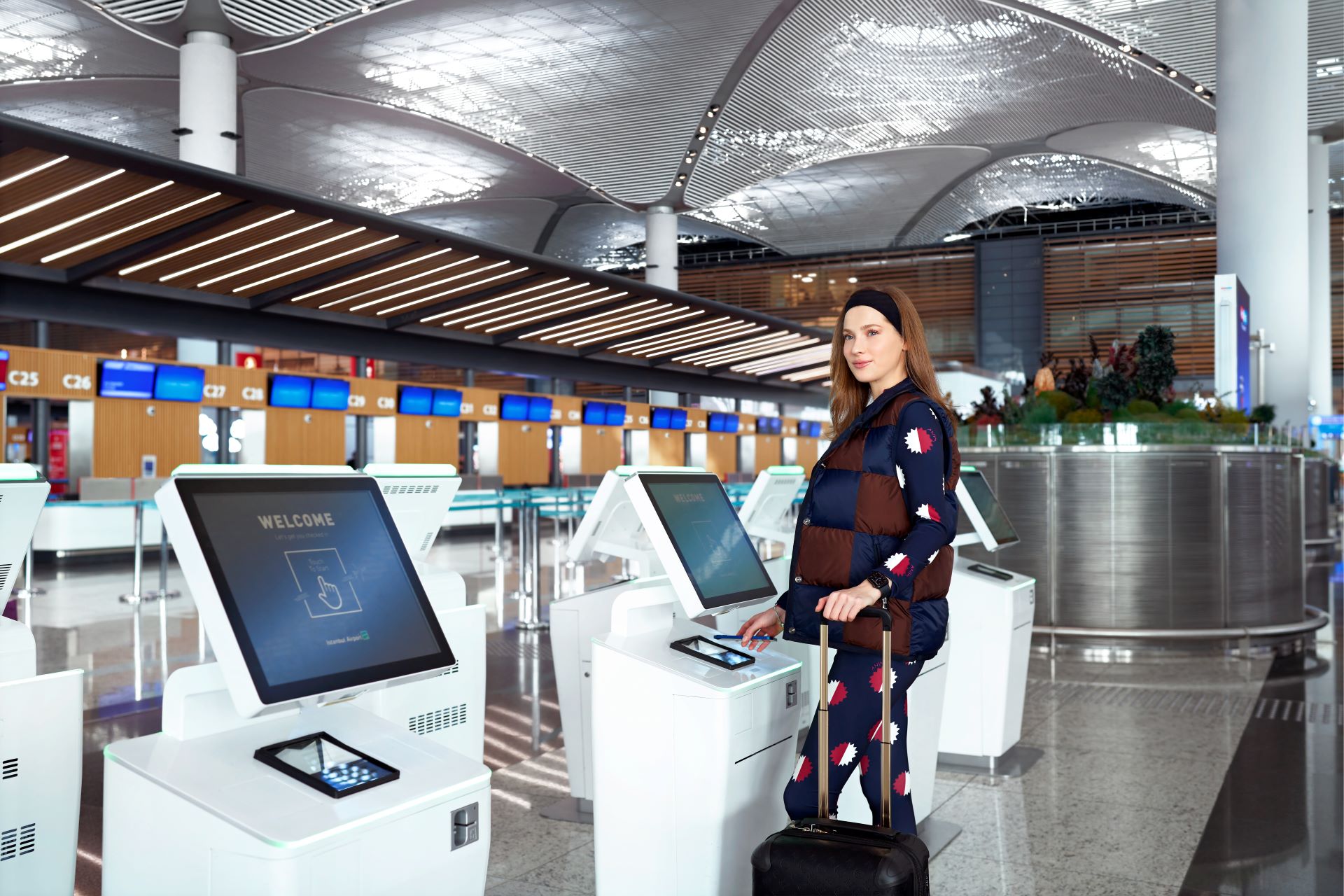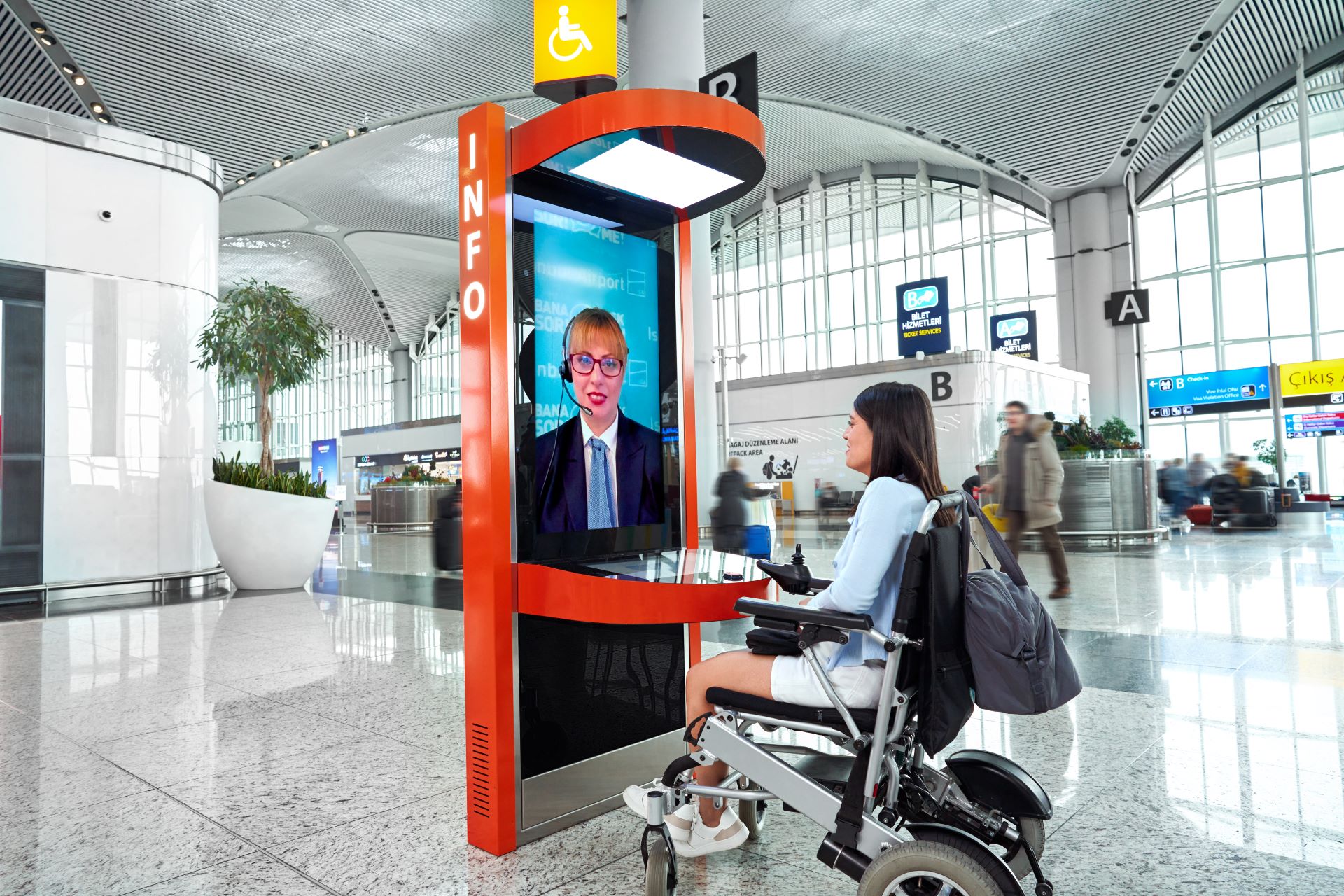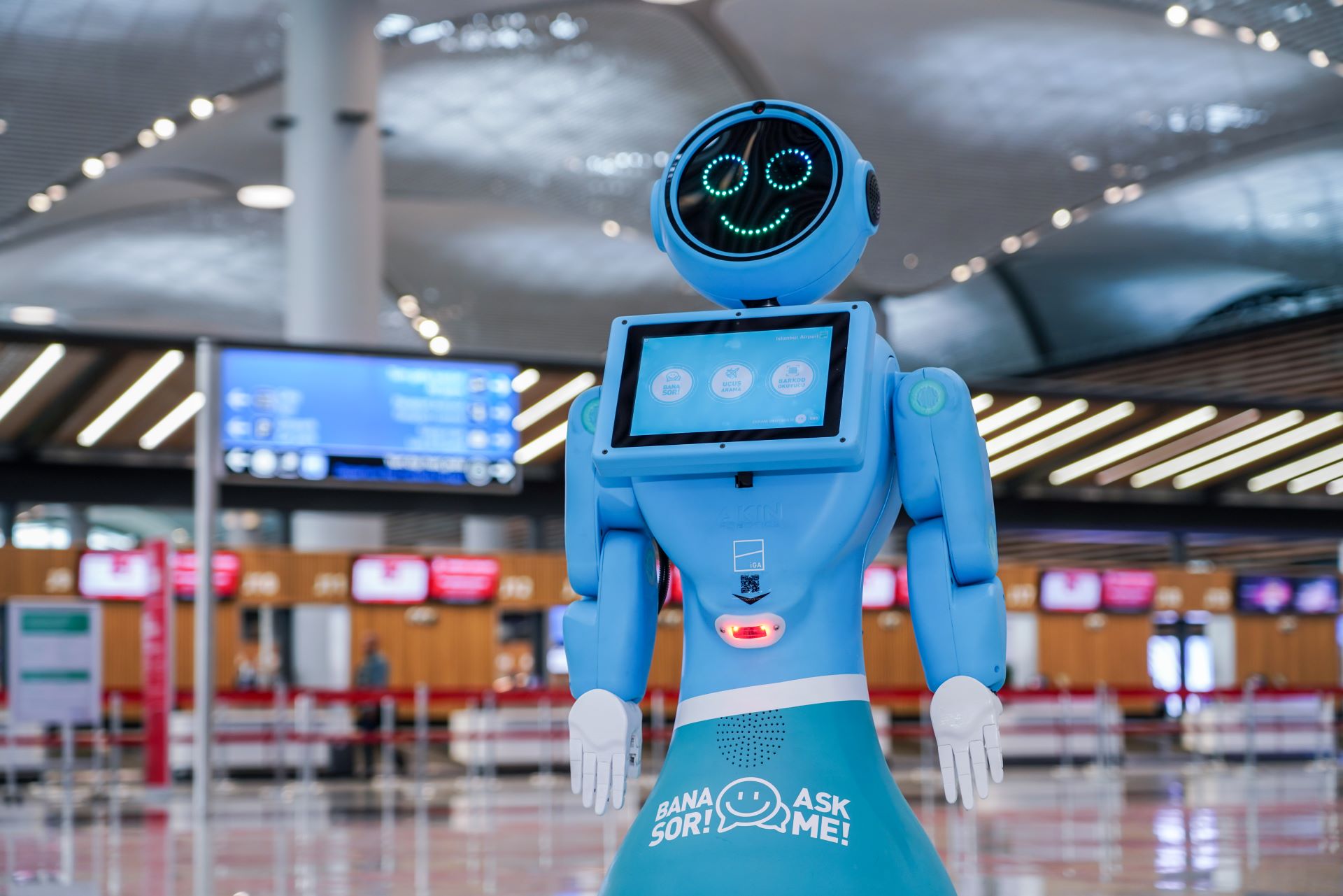Technology
17 April 2025Güncelleme Tarihi: 18 April 2025
Airports are no longer just places where flights happen; they have become smart transportation hubs combining speed, safety, comfort, and connectivity. With each passing day, more technology is integrated to provide faster services, ensure safer travel, and make waiting times more comfortable.
Istanbul Airport stands out as a pioneering center that embodies the airport of the future concept today. With its technological investments, it was honored with the “Digital Transformation Award” at the 16th ACI Europe Awards by the Airports Council International (ACI Europe), and was also named “Europe’s Best Airport in Digital Transformation.”
This award proves that Istanbul Airport goes beyond being a major passenger hub and shines with its smart systems integrated with technology. Let’s take a closer look at the smart technologies that make the airport experience faster, safer, and more comfortable — from artificial intelligence to biometric systems, from security to digital passenger services.

1. A New Era in Passenger Experience Through Digital Transformation
Digital transformation in airports brings many innovations that make the travel process faster, more practical, and more comfortable. As one of the leaders in this transformation, Istanbul Airport offers its passengers a more efficient experience through contactless systems, personalized services, and fast security solutions. From biometric systems to real-time information flow, many digital solutions make processes easier and improve travel comfort.
Biometric Systems: These systems use biometric data such as facial recognition and fingerprints for identity verification. They speed up traditional passport checks while increasing security and reducing waiting times in long lines.
Istanbul Airport excels in this area with 30 fast passport control counters — 16 arrivals, 10 departures, and 4 transfer points. After scanning their passports and matching biometric data, passengers can complete passport control in just 18–20 seconds.
Personalized Info Flow: The IGA Istanbul Airport Mobile App works like a personalized digital assistant, providing real-time updates about gate changes and airport services.

2. Smart Security and Fast Track Technologies
Security is one of the most important factors affecting the passenger experience. Traditional security checks often cause long queues and time loss, while advanced security systems make this process faster and more efficient.
Istanbul Airport improves both security and time efficiency through the following innovations:
IGA Fast Track: Offers priority access through security and passport control, helping passengers skip the long lines.
Smart X-Ray & Contactless Checks: Advanced screening systems allow for quicker and more efficient baggage checks.
Advanced Monitoring Systems: Cameras and sensors throughout the terminal detect unusual activity and immediately notify security teams.

3. Digital Passenger Services and Mobile Solutions
Flight info access, finding the right gate, and handling baggage can be stressful. Istanbul Airport eases these with innovative digital solutions:
IGA Mobile App – Everything at Your Fingertips:
The app helps passengers manage their travel with real-time updates, baggage tracking, interactive maps, access to duty-free shops, restaurants, IGA Pass services, and ATMs. Features like parking availability, payment options, valet services, and “Where’s My Car?” navigation offer a smoother journey. Passengers can also track loved ones’ flights and see their location within the terminal.
QR Code and Self Check-in Kiosks:
Self check-in kiosks located across the terminal allow online ticket holders to choose seats and print boarding passes. These are available from two hours to 40 minutes before departure, avoiding queues and saving time.
AI-Powered Customer Services:
Digital assistants powered by AI and advanced chatbots offer real-time answers across communication channels, enhancing comfort and reducing resource needs. Passengers receive personalized support from home to gate.
With the "Phygital Experience" strategy, Istanbul Airport merges physical and digital environments, offering each traveler a personal digital companion.
Notable features:
Real-time parking data
"Find My Car" navigation
Payment via WhatsApp (world’s first)
Live flight tracking and document access
Automated lost and found processes
QR code-based in-terminal navigation
Detailed info on shops, dining, rest zones, and utilities
Accessibility Services:
All support services under the IGA Cares program are available via an accessible chatbot menu. A live sales bot helps unsure passengers at lounge entries. Thanks to hyper-personalization, the bot suggests lounge use to passengers with more than 120 minutes before their flight — enhancing both service and sales.
All these digital innovations make Istanbul Airport not only technologically advanced but also a model of passenger satisfaction.

4. Environmentally Friendly and Sustainable Airport Technologies
Istanbul Airport is taking major steps toward becoming a future-proof airport not just through innovation but also sustainability. With a goal of becoming carbon-neutral by 2050, it focuses on energy efficiency, water conservation, waste management, and biodiversity protection.
Key practices:
Energy use is monitored via ISO 50001 and improved continuously.
Terminals and some facilities have received LEED certification for eco-friendly design.
It became Turkiye’s first airport to receive the Zero Waste Certificate, supported by semi-automated waste separation systems.
Water Conservation:
Only reclaimed water is used for landscaping, significantly reducing the water footprint. Biodiversity initiatives include protecting rare plants, monitoring bird migration routes, and a 5,000-hectare reforestation project.
These efforts aim to align aviation with nature, creating a more livable world for the future.

5. Vision of the Airport of the Future: What Lies Ahead?
Looking at how fast technology is advancing, future airports will undoubtedly be faster, smarter, and more passenger-friendly. Facial recognition replacing passports and boarding passes, completing security in seconds, and real-time baggage tracking will become the norm. Getting lost in an airport? A thing of the past! AI-guided navigation and augmented reality will guide travelers step-by-step.
Connectivity will also reach new heights, and eco-conscious practices will take center stage. Terminals running on renewable energy, zero-waste operations, and carbon-neutral systems will form the foundation of next-gen airports. As biofuels and hydrogen become more common in aviation, flights will not only be faster and comfier — but also greener.



